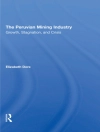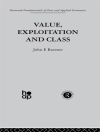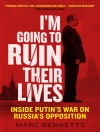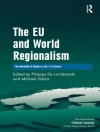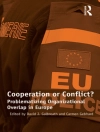Thomas Sankara was one of Africa’s most important anti-imperialist leaders of the late 20th Century. His declaration that fundamental socio-political change would require a ‘certain amount of madness’ drove the Burkinabe Revolution and resurfaced in the country’s popular uprising in 2014.
This book looks at Sankara’s political philosophies and legacies and their relevance today. Analyses of his synthesis of Pan-Africanism and humanist Marxist politics, as well as his approach to gender, development, ecology and decolonisation offer new insights to Sankarist political philosophies. Critical evaluations of the limitations of the revolution examine his relationship with labour unions and other aspects of his leadership style. His legacy is revealed by looking at contemporary activists, artists and politicians who draw inspiration from Sankarist thought in social movement struggles today, from South Africa to Burkina Faso.
In the 30th anniversary of his assassination, this book illustrates how Sankara’s political praxis continues to provide lessons and hope for decolonisation struggles today.
İçerik tablosu
Foreword by Horace G. Campbell
Acknowledgements
Introduction by Amber Murrey
Part I: Life and Revolution
1. Military Coup, Popular Revolution or Militarised Revolution?: Contextualising the Revolutionary Ideological Courses of Thomas Sankara and the National Council of the Revolution – De-Valera N.Y.M. Botchway and Moussa Traore
2. The Perils of Non-Alignment: Thomas Sankara and the Cold War – Brian Peterson
3. Thomas Sankara and the Elusive Revolution – Leo Zeilig
4. When Visions Collide: Thomas Sankara, Trade Unions and the Revolution in Burkina Faso, 1983-1987 – Craig Phelan
5. Africa’s Sankara: On Pan-African Leadership – Amber Murrey
6. Who Killed Thomas Sankara? – Bruno Jaffré
7. ‘Incentivized’ Self-Adjustment: Reclaiming Sankara’s Revolutionary Austerity from Corporate Geographies of Neoliberal Erasure – Nicholas A. Jackson
Part II: Political Philosophies
8. Madmen, Thomas Sankara and Decoloniality in Africa – Ama Biney
9. With the People: Sankara’s Humanist Marxism – Ernest Harsch
10. Thomas Sankara & Tajudeen Abdul-Raheem: The Untimely Deaths of Two New Generation African Visionaries – Patricia Daley
11. Women’s Freedoms are the Heartbeat of Africa’s Future: A Sankarian Imperative – Patricia Mc Fadden
12. Re-Reading Sankara’s Philosophy for a Praxeology of Debt in Contemporary Times – Sakue-C. Yimovie
13. Sankara’s Political Ideas and Pan-African Solidarity: A Perspective for Africa’s Development? – Felix Kumah-Abiwu and Olusoji Alani Odeyemi
14. ‘Revolution and Women’s Liberation Go Together’: Thomas Sankara, Gender and the Burkina Faso Revolution – Namakula E. Mayanja
Part III: Legacies
15. Balai Citoyen: A New Praxis of Citizen Fight with Sankarist Inspirations – Zakaria Soré
16. La Santé Avant Tout: Health Before Everything – T. D. Harper-Shipman
17. Social Movement Struggles and Political Transition in Burkina Faso – Bettina Engles
18. To Decolonize the World: Thomas Sankara and the ‘Last Colony’ in Africa – Patrick Delices
19. ‘Daring to Invent the Future’: Sankara’s Legacy and Contemporary Activism in South Africa – Levi Kabwato and Sarah Chiumbu
Part IV: Contestations and Homages
20. The Academy as Contested Space: Disappearing Sankara from the ‘Acceptable Avant-Garde’ – Nicholas A. Jackson
21. Art and the Construction of a ‘Sankara Myth’: A Hero Trend in Contemporary Burkinabè Urban & Revolutionary Propaganda Art – Sophie Bodénès Cohen
22. Slanted Photography: Reflections on Sankara and My Peace Corps Experience in Burkina Faso – Celestina Agyekum
23. ‘We Are the Children of Sankara’: Memories as Weapons during the Burkinabe Uprisings of 2014 and 2015 – Fiona Dragstra
Afterword by Aziz Salmone Fall
Notes on Contributors
Index
Yazar hakkında
Horace G. Campbell teaches at Syracuse University in New York. He has been involved in the peace and justice movements for decades. He is the author of Barack Obama and Twenty-First-Century Politics (Pluto, 2010) and Rasta and Resistance From Marcus Garvey to Walter Rodney (Hansib, 2007).


